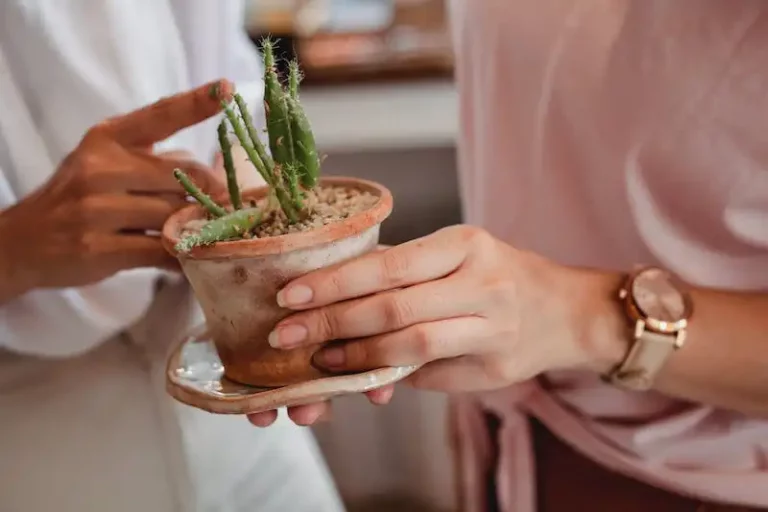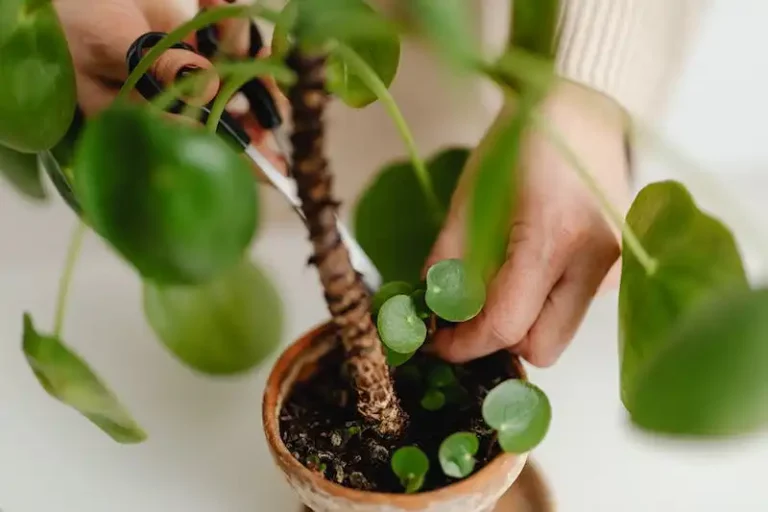If you have noticed that the leaves of your plants are turning black, there could be several reasons for this issue. One of the main causes is root rot, which occurs when the roots of the plants are overwatered or the soil remains wet for too long. Inadequate drainage and overwatering can lead to the growth of bacteria or fungi in the root system, resulting in browning and eventual blackening of the leaves.
Another possible reason for black leaves is a lack of sunlight. Plants need adequate light to grow and thrive. If your plants are placed in an area with low light or if they are not receiving enough sunlight, the lack of light could cause their leaves to turn black. Inadequate air circulation and high humidity levels can also contribute to the development of black leaves.
Pests and infestation can also be a reason why your plants’ leaves are turning black. Mites and other pests can cause damage to the leaves, resulting in browning and discoloration. Late frosts can also cause the leaves to turn black.
To improve the health of your plants and prevent the leaves from turning black, there are several effective solutions you can try. Firstly, make sure to properly water your plants and avoid overwatering. Check the moisture level of the soil before watering and ensure that the pots have adequate drainage.
If root rot has already occurred, it may be necessary to repot the plants in fresh, well-draining soil. This will help to remove any bacteria or fungi present in the old soil and provide a healthier environment for the roots.
Furthermore, it is important to keep your plants in the right conditions. Watch for pests and infestations, and treat them promptly if you notice any. Provide enough sunlight and air circulation, and maintain proper humidity levels. Avoid overfertilizing your plants, as this can also contribute to leaf discoloration. Follow the guidelines for each specific type of plant you own, as different plants have different requirements for optimal growth.
If you have tried all of these methods and your plant leaves are still turning black, it may be necessary to consult a professional or seek advice from a local garden center. They can help identify the exact cause of the problem and provide a solution tailored to your specific situation.
In conclusion, black leaves on your plants can be caused by root rot, lack of sunlight, pests, or other factors. By following proper care guidelines and addressing any issues promptly, you can help prevent this problem and keep your plants healthy and vibrant.
Remember, prevention and early intervention are always the best ways to promote the health of your houseplants!
Originally posted on [источник].
7 Causes of Black Leaves on Plants And How To Fix
Black leaves on plants can be a concerning sight for any gardener. Not only do they detract from the overall beauty of the plant, but they also indicate that something is not quite right with its health. Here are seven common reasons why plant leaves may turn black and what you can do to fix them:
- Fungal diseases: Rot or fungal infections can cause black spots or splotches to appear on plant leaves. To fix this issue, remove and destroy any affected leaves, improve air circulation around the plant, and avoid overwatering.
- Pest infestation: Certain pests like aphids, mites, or scale insects can cause leaves to turn black. Use appropriate insecticides or natural pest control methods to get rid of the pests and prevent further damage.
- Frost damage: Freezing temperatures can damage plant tissues, leading to blackened leaves. Protect your plants from frosts by covering them or bringing them indoors.
- Improper nutrient balance: Lack of nutrients such as phosphorus can result in black leaves. Be sure to provide your plants with a balanced fertilizer to promote healthy growth.
- Insufficient light: Plants that don’t receive enough light may develop chlorophyll deficiencies, causing their leaves to turn a purple-black color. Move your plants to a spot where they can get more sunlight.
- Overwatering: Excessive watering can saturate the soil and lead to root rot, which in turn can cause black leaves. Make sure to water your plants only when the top inch of soil feels dry.
- Bacterial infection: Bacterial diseases can also cause black leaf spots. Cut off and destroy infected leaves, ensure proper ventilation to avoid conditions suitable for bacterial growth, and consider using fungicides to control the infection.
By addressing these common causes of black leaves on plants, you can help improve their health and appearance. Remember to consult a gardening expert or reference reliable sources for more specific tips and solutions tailored to your plant’s needs.
Source: [источник]
Overwatering
Overwatering is one of the most common causes of blackened leaves in houseplants. When a plant is overwatered, it is essentially waterlogged. This excess moisture creates a damp environment that favors the growth of fungi and bacteria, which can attack the roots and cause damage to the plant.
There are several reasons why you may be overwatering your plants. One reason is that you may not have properly assessed the water requirements of your specific houseplant. Different plants have different needs when it comes to watering, so it’s important to do your research and understand the specific requirements of each plant in your care.
Another reason for overwatering is a lack of proper drainage in the pot. If your houseplant is sitting in a pot without drainage holes, excess water can accumulate in the bottom, leading to root rot and other diseases.
Overwatering can also occur if you water your plants too frequently or if you use an unsuitable watering system. For instance, using a sprinkler or hose can lead to excessive watering and wet foliage, which increases the chances of fungal and bacterial growth.
If you suspect overwatering is the cause of your plant’s blackened leaves, it’s important to take corrective measures. First, stop watering the plant immediately. Allow the soil to dry out before watering again. In some cases, it may be necessary to repot the plant in fresh, well-draining soil to ensure proper drainage and root health.
In addition to addressing the watering issue, it’s also essential to provide adequate ventilation and light for your houseplants. Good air circulation helps prevent the buildup of moisture and reduces the risk of fungal and bacterial diseases.
To help your plant recover, you can cut off any blackened or crispy leaves, as they are unlikely to recover. Using fungicides or other pest control solutions may also be necessary to treat any underlying fungal or bacterial infections.
It’s important to note that overwatering is not the only cause of blackened leaves in plants. Other factors, such as overexposure to sunlight or high levels of humidity, can also cause leaf discoloration. Additionally, certain pests and diseases can contribute to the problem.
In conclusion, if your plant leaves are turning black, overwatering may be the culprit. Assess your watering habits, ensure proper drainage, and provide adequate ventilation and light. With proper care and attention, your plants should start to recover and grow healthy leaves once again.
Too much fertilizer
Overfertilizing your plants can lead to a variety of problems, including black leaves. When you use an improper or excessive amount of fertilizer, it can cause damage to the roots and disrupt the plant’s normal growth process. As a result, the leaves may turn black or show other signs of stress.
One of the main reasons for overfertilizing is a lack of understanding about your plant’s specific needs. Different plants require different amounts of nutrients, and it is essential to know what your plant needs before applying fertilizer. Moreover, indoor plants generally require less fertilizer than outdoor plants due to lower light levels and slower growth rates.
In some cases, the black leaves may be caused by bacteria or mites, rather than overfertilizing. These pests can damage the leaves and lead to discoloration. Therefore, it is important to inspect your plants for any signs of infestation and take appropriate measures to get rid of the parasites.
One of the simplest solutions to improve the condition of your plants is to cut back on the amount of fertilizer you are using. Reduce the frequency of fertilizing and the concentration of the fertilizer solution. Make sure to water your plants thoroughly before applying any fertilizer and avoid foliar feeding, as it can burn the leaves. Also, always follow the instructions on the fertilizer packaging to prevent overfertilizing.
If you suspect that the black leaves are due to overfertilizing, you can try flushing the soil with water to remove any excess nutrients. This can be done by watering your plant heavily for a few days, allowing the water to drain out the bottom of the pot. Repeat this process several times to ensure that the substrate is free of any leftover fertilizer.
In hot and dry climates, sunburn can also cause black leaves. If your plant is placed in direct sunlight for extended periods, consider moving it to a shadier location or providing some form of shade. This will protect the leaves from the intense heat and prevent sunburn.
In some cases, the black leaves may be a natural phenomenon, especially in older or mature plants. As leaves age, they naturally turn yellow, brown, or black before they eventually fall off. However, if you notice black leaves appearing on younger or new growth, it is likely a sign of a problem.
Before jumping to conclusions about the cause of black leaves, it’s always a good idea to ask for advice from a gardening expert or consult a plant care resource. Together, you can determine the real reasons behind the black leaves and take the appropriate actions to address the issue.
Here are some tips to prevent black leaves caused by overfertilizing:
- Use a well-draining potting mix to prevent waterlogged conditions that can increase the risk of fertilizer damage.
- Ensure that your plant is watered properly and not overwatered. Moisture stress can exacerbate the damage caused by excessive fertilizing, so it’s essential to find the right balance.
- Consider using organic fertilizers that release nutrients slowly and are less likely to cause damage to your plants.
- Monitor the humidity levels around your plants. High humidity can increase the plants’ need for nutrients and may exacerbate the effects of overfertilization.
- If pests like mites are causing the damage, you can try using neem oil or other organic pest control methods to control the infestation.
- Regularly inspect your plants for any signs of diseases or pests and address them promptly to prevent further damage.
- Avoid using a multi-purpose fertilizer for all your plants. Different plants have different nutrient requirements, so it’s important to choose a fertilizer specific to your plant’s needs.
By following these tips and being mindful of your plant’s fertilizer needs, you can help keep your plants healthy and prevent the problem of black leaves.



